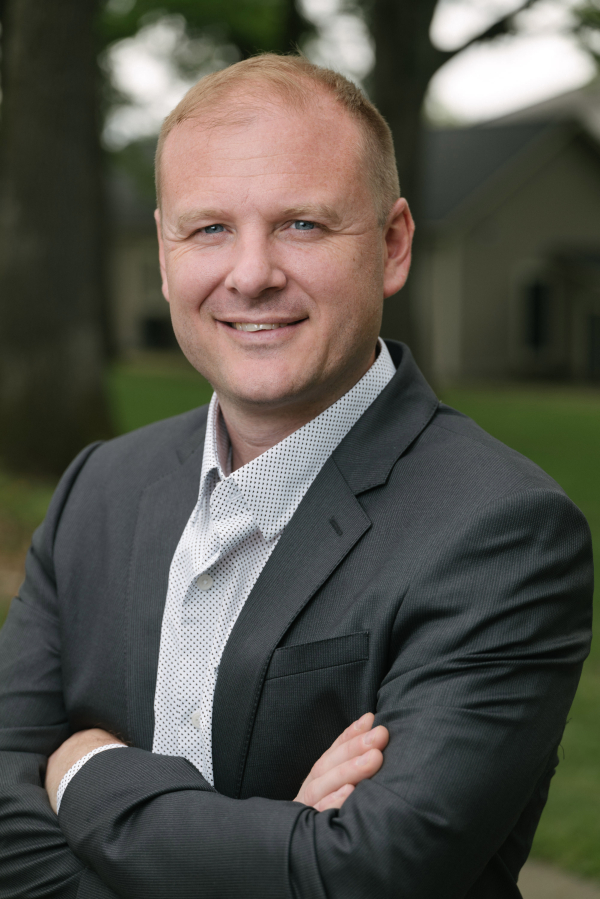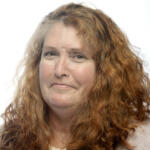Democrat Temple Lentz’s announcement in April that she wouldn’t seek reelection to the Clark County Council caught her supporters off guard. Now that council positions are nonpartisan, thanks to a charter amendment approved by voters in November 2021, the traditionally Democratic district could be won by a conservative.
That’s the hope of candidate Doug Coop. Challenging Coop are Hector Hinojosa and Glen Yung.
The candidates share a similar list of priorities – public safety, housing, homelessness and land use – but differ on how to address those needs. None of the candidates have previously been elected to office.
Hinojosa is a former field service engineer who helped found the Southwest Washington League of United Latin American Citizens. He’s served on several boards and organizations, including the Columbia River Mental Health Foundation, Vancouver Farmers Market, Stone Soup and Community Roots Collaborative. He ran for Clark County Charter Review Commission in 2020.
After a career in finance, Yung and his wife started a remodeling business. He’s on the Vancouver task force for council representation, Community Advisory Committee, Uptown Village Association, Clark County School Advisory Council and Remodelers of Clark County. He ran for Vancouver City Council in 2021.
Now retired, Coop worked as a senior account manager at a packaging company for 20 years. After moving to Clark County in 2015, he became active in homeless outreach and community projects. He ran for Vancouver mayor in 2021.
Public safety
Like most Clark County residents, the candidates share concerns about rising crimes rates and funding and staffing shortages at the sheriff’s office. Mirroring national trends, Clark County’s property crime rate is rising, especially thefts of cars and catalytic converters.
Yung said he’s been victimized. “In the last two years, I’ve had my catalytic converter stolen from my car. My truck had its window bashed in, and some low value stuff stolen out of it. Crime has changed. It’s become more aggressive,” Yung said.
While all three candidates agree the county needs more deputies on the road and enforcing laws, they disagree on how to pay for it.
Yung said he supports the county’s proposed 0.1 percent public safety sales tax, which will be used to pay for ongoing expenses of a body and dash camera program for the sheriff’s office. The funds will also pay for more sheriff’s deputies and improvements at the jail. The tax is expected to generate $12 million annually, with the county receiving 60 percent and the cities getting the remaining 40 percent.
Yung said the county council dropped the ball when it did not collect the 1 percent annual property tax increase allowed by state law. While he said it wouldn’t have kept up with inflation, it would have provided some funding.
“The reality is we are here now. The only way to combat it is to ask the voters for an increase,” Yung said. “Public safety is the backbone of our community.”
Coop vehemently disagrees with raising any taxes and believes residents are already paying too much.
“We have enough tax money to fund the sheriff’s department,” Coop said.
While he wants the sheriff’s office brought “up to snuff,” he said it needs to be accomplished through cuts and adjustments to the existing budget.
“In the past we had a volunteer sheriff’s program. We could institute that and it would free up (deputies) to handle things like the ongoing crimes they have to investigate,” Coop said.
While he has yet to identify specific budget cuts, Coop said he believes it’s a matter of prioritizing.
“There are funds available, even through the (American Rescue Plan Act) funds to fund the sheriff’s department,” Coop maintained.
According to the county, the plan’s funds — which were provided by the federal government for COVID-19 pandemic relief — can only be used for one-time expenses, and not for ongoing expenses such as payroll.
Hinojosa also favors the body cameras tax. He said he knows the county council has been pressured not to raise taxes but said there’s good reason to pass this measure.
“Sheriff’s deputies like to be paid … There’s competition for law enforcement officers and other jurisdictions pay more,” he said. “If we don’t figure out how to increase the budget, how are we going to retain the officers we have? How are we going to train new ones? Are we going to be able to hire new ones and have competitive wages for police officers?”
Housing, homelessness and land use
Clark County’s population surpassed the half-million mark this year. The candidates agree on the need for land use planning and addressing affordable housing and homelessness.
Hinojosa wants the county to focus more on preserving agricultural lands rather than sacrificing them for residential or commercial development. “We can’t afford to lose our farms. We need to make sure we have food provided in case that disaster we’re always expecting with the ‘big one’ happens. What are we going to do if all the surrounding bridges fall down then we’re isolated here?” he said.
Hinojosa said increasing the availability of affordable housing will help address other issues, such as economic health and homelessness.
“If you have a house, you have a much better shot at getting a job,” he said.
Yung said that with a 17-year-old soon to graduate from high school, affordable housing has been at the forefront of his concerns.
“When I was 21, I bought my first house in Vancouver. There is no route to do that right now,” he said.
Yung said addressing the housing crisis will need a holistic solution that incorporates homelessness, housing, law enforcement and more.
“There are a lot of players … who’ve had the greatest intentions but what they’ve been doing isn’t working. In some cases it may have inadvertently made things worse. As a community, we need to sit down, be open, honest, transparent and have a constructive conversation,” Yung said.
Coop said he chose to run for the council because he wants to see less government regulation and more personal accountability.
“We need to get rid of regulations that constantly feed into the property tax scenario,” he said. “You can’t say you want affordable housing and then on the back end keep raising the price of permits… We’ve got to get that under control.”
Although the county council has no say in school district, fire district or other levies, Coop criticized them because he hasn’t seen a return on investment.
“If they want to have more levies, we’ve got to see where we’re going to get something back,” he said.
Under state law, the county is the lead agency in addressing homelessness. Coop would pass the responsibility on to faith-based and community organizations.
“We can have a one-stop shop, one source, one number to call when the sheriff’s (deputies) or whomever is dealing with the homeless people,” Coop said.
He said a UCLA study found 75 percent of homeless individuals struggle with drug and/or mental health issues, which means the community needs more rehabilitation programs.
“It’s a community problem and we all need to get on board and face it,” Coop said.
The top two vote-getters in the Aug. 2 primary will advance to the November general election.




